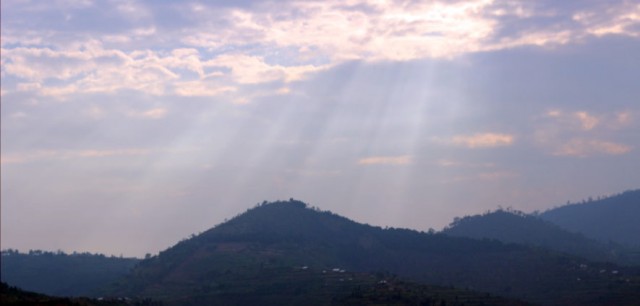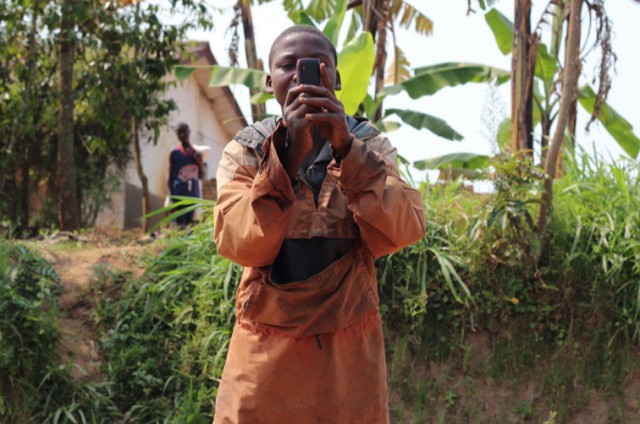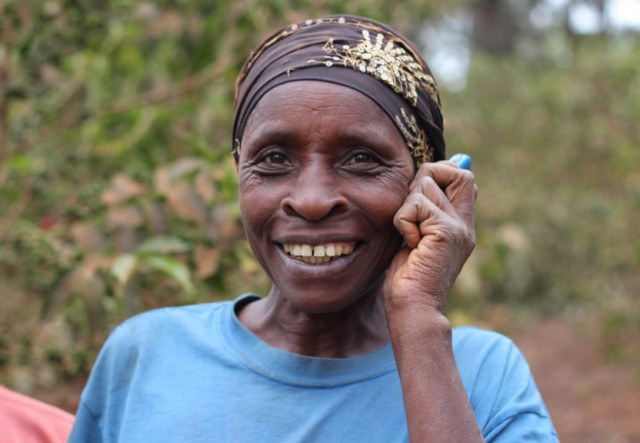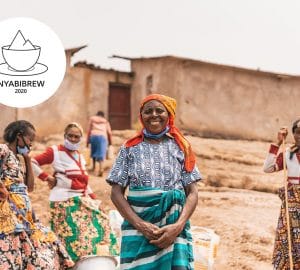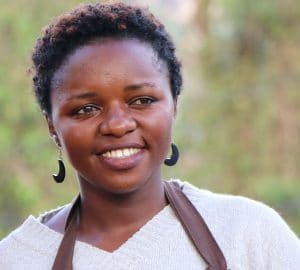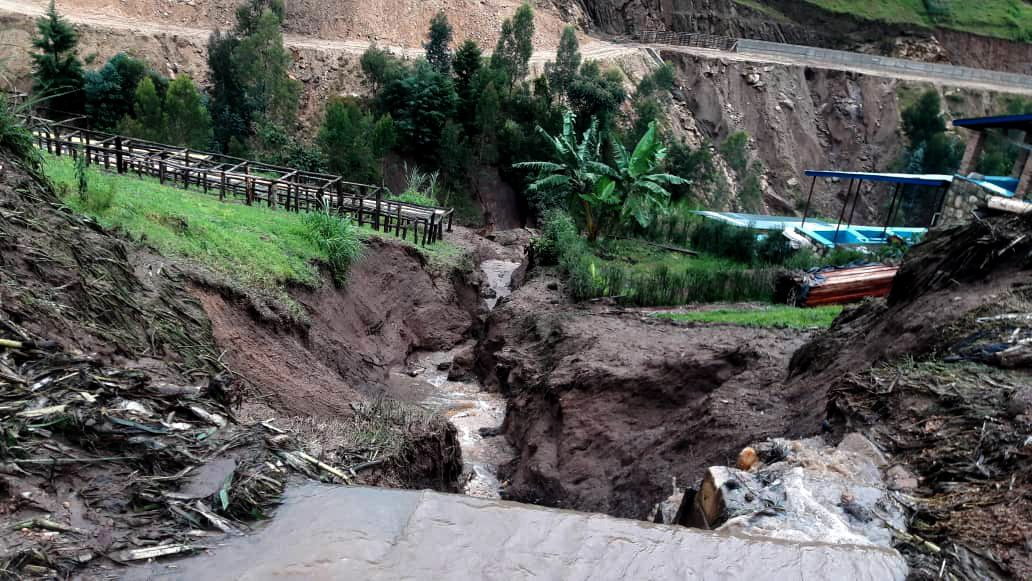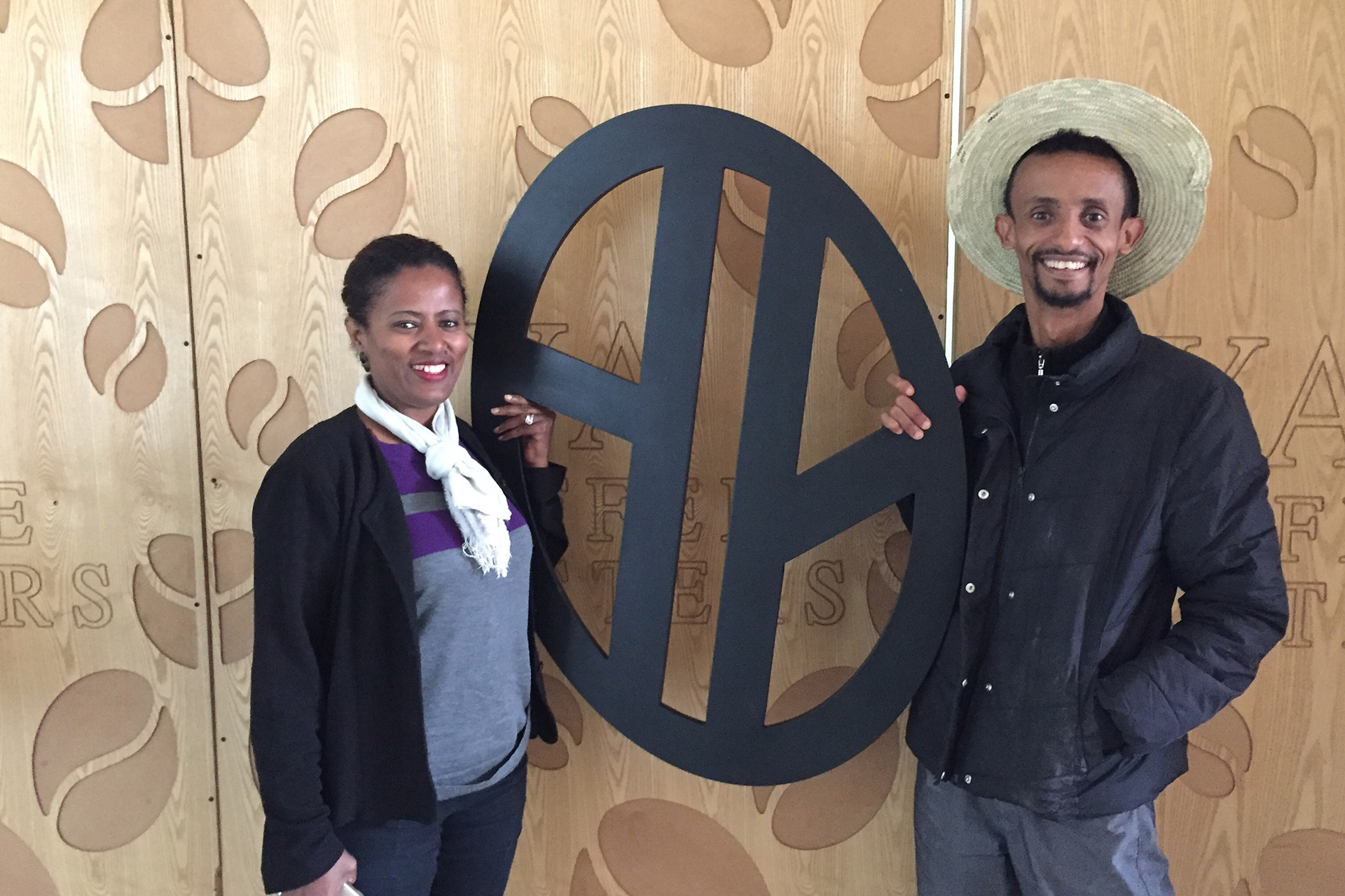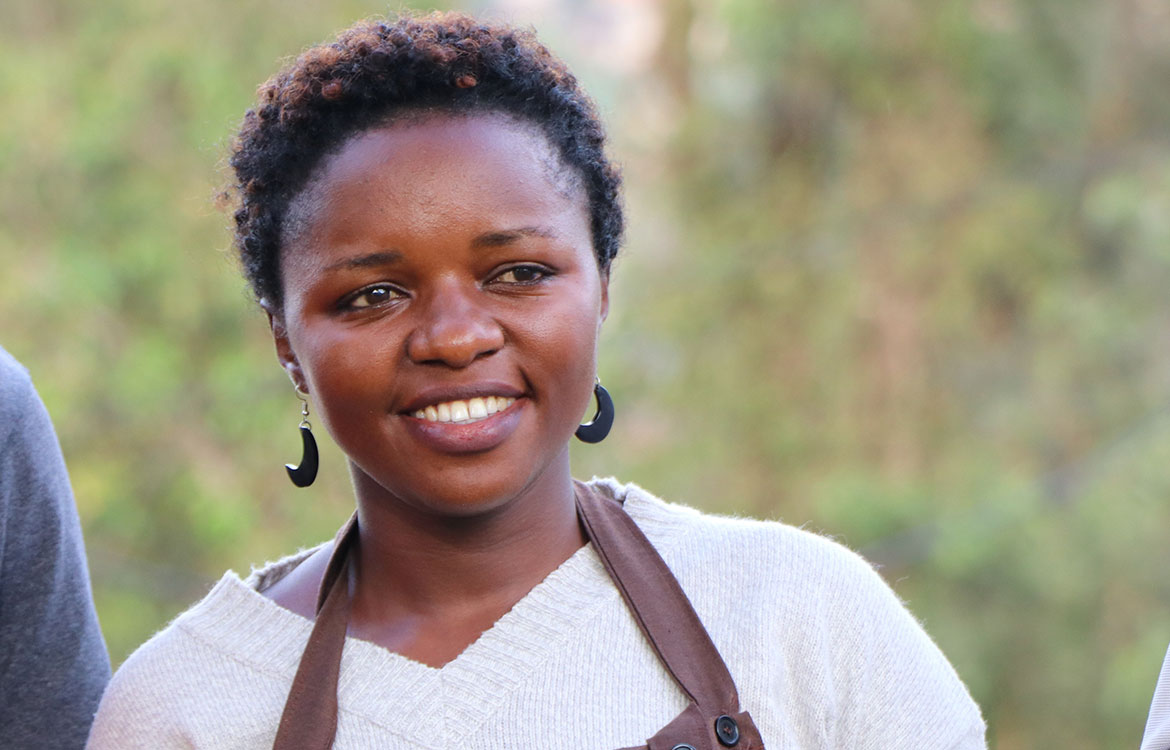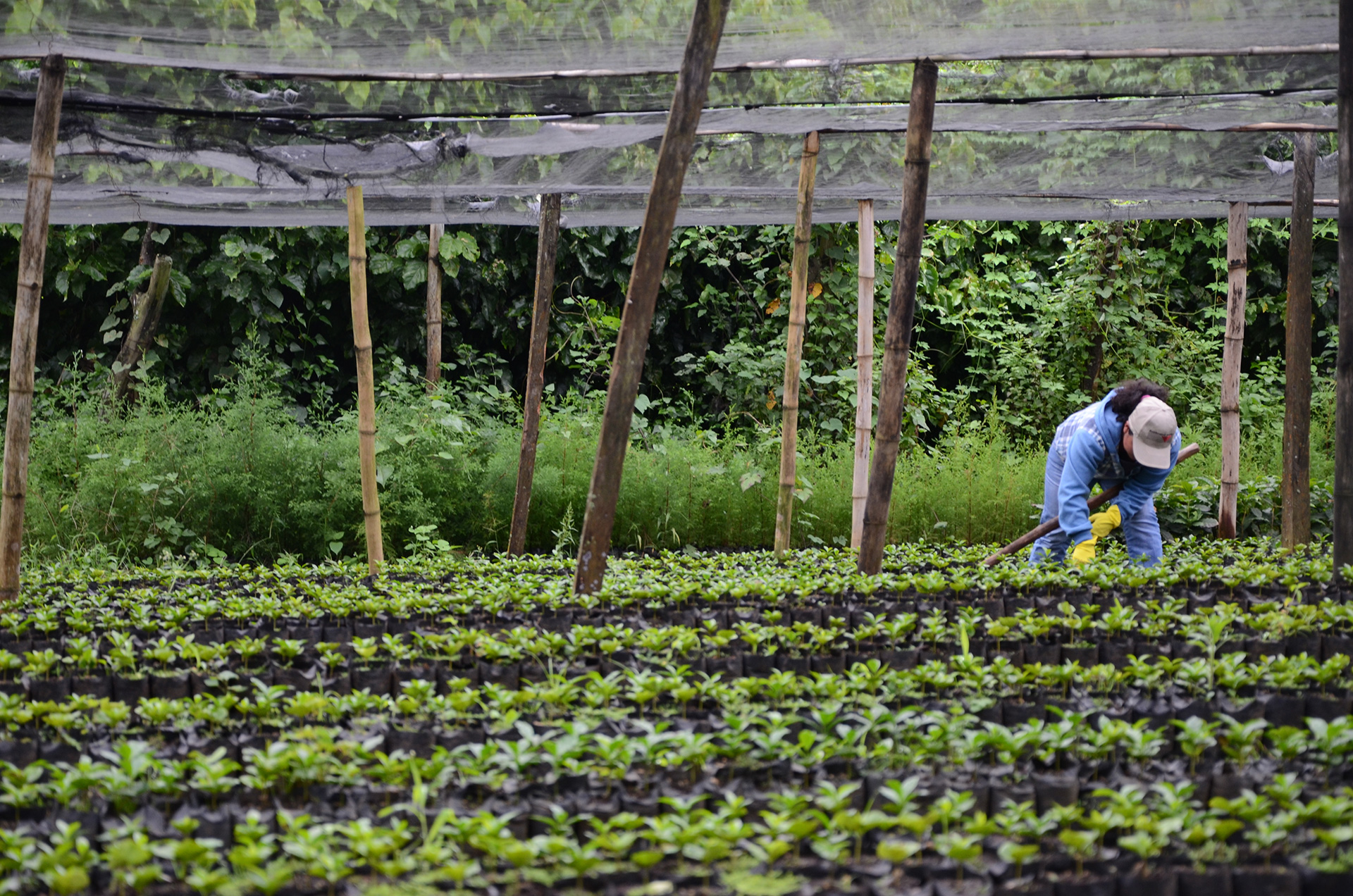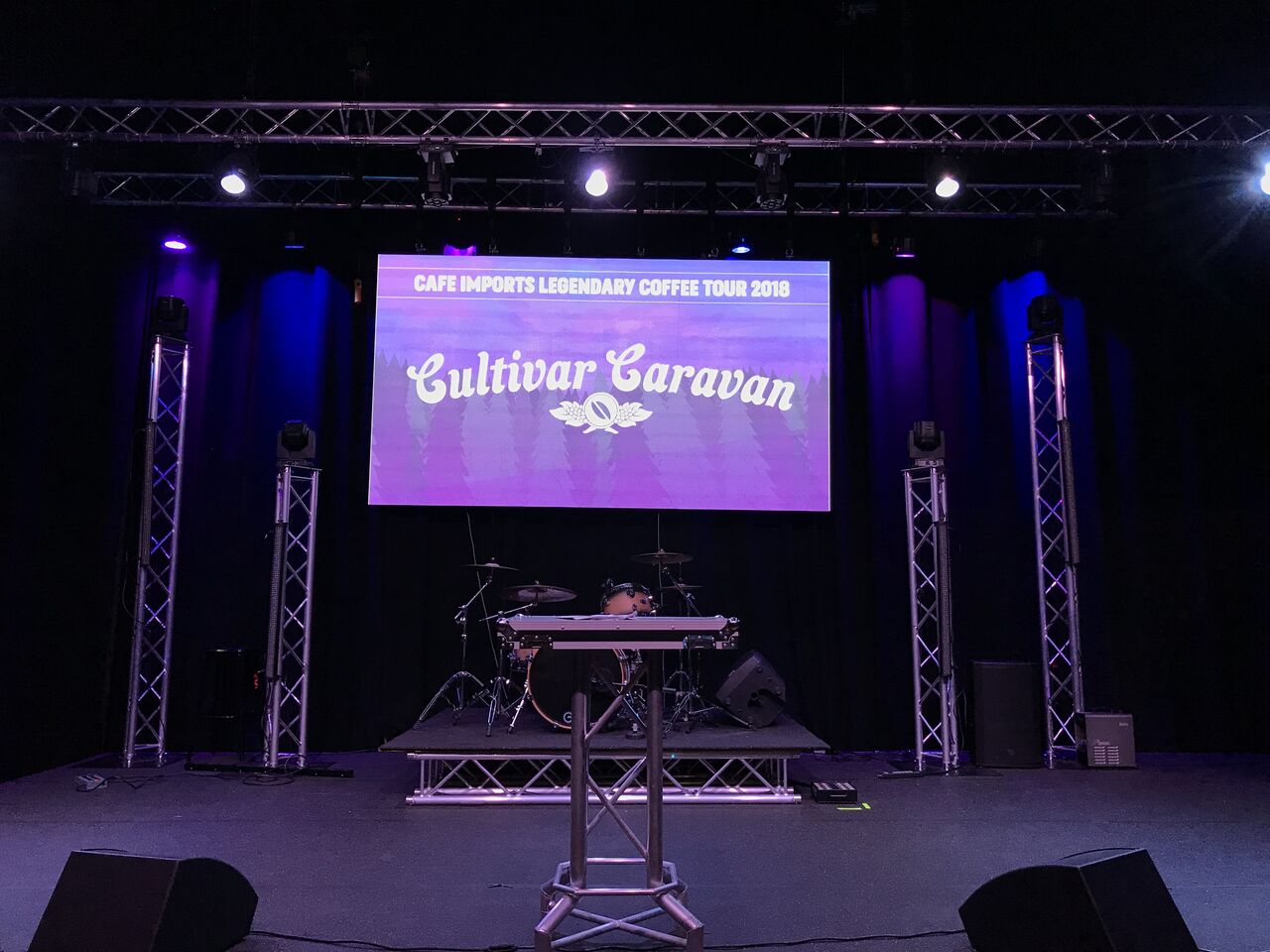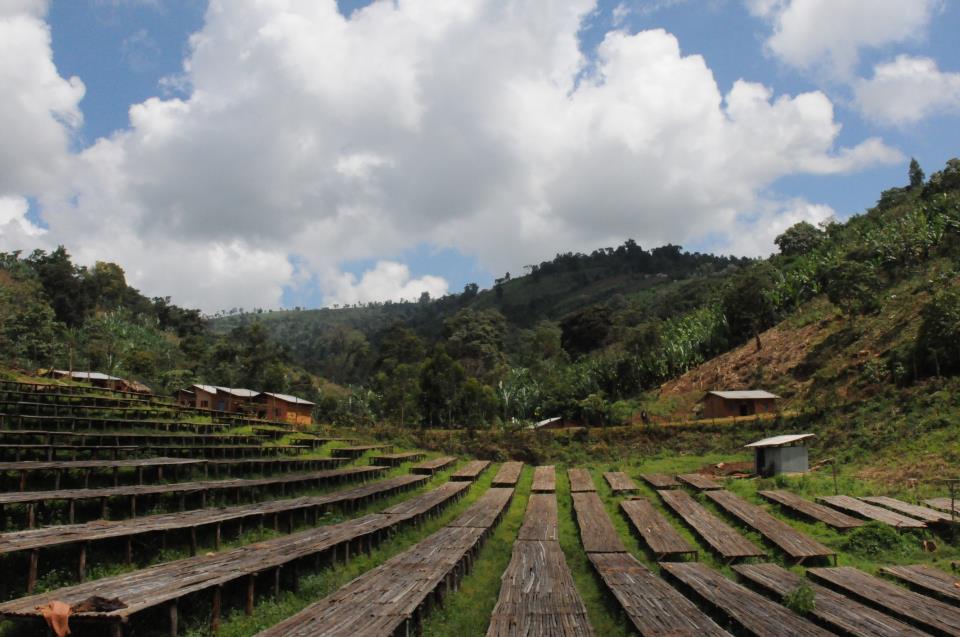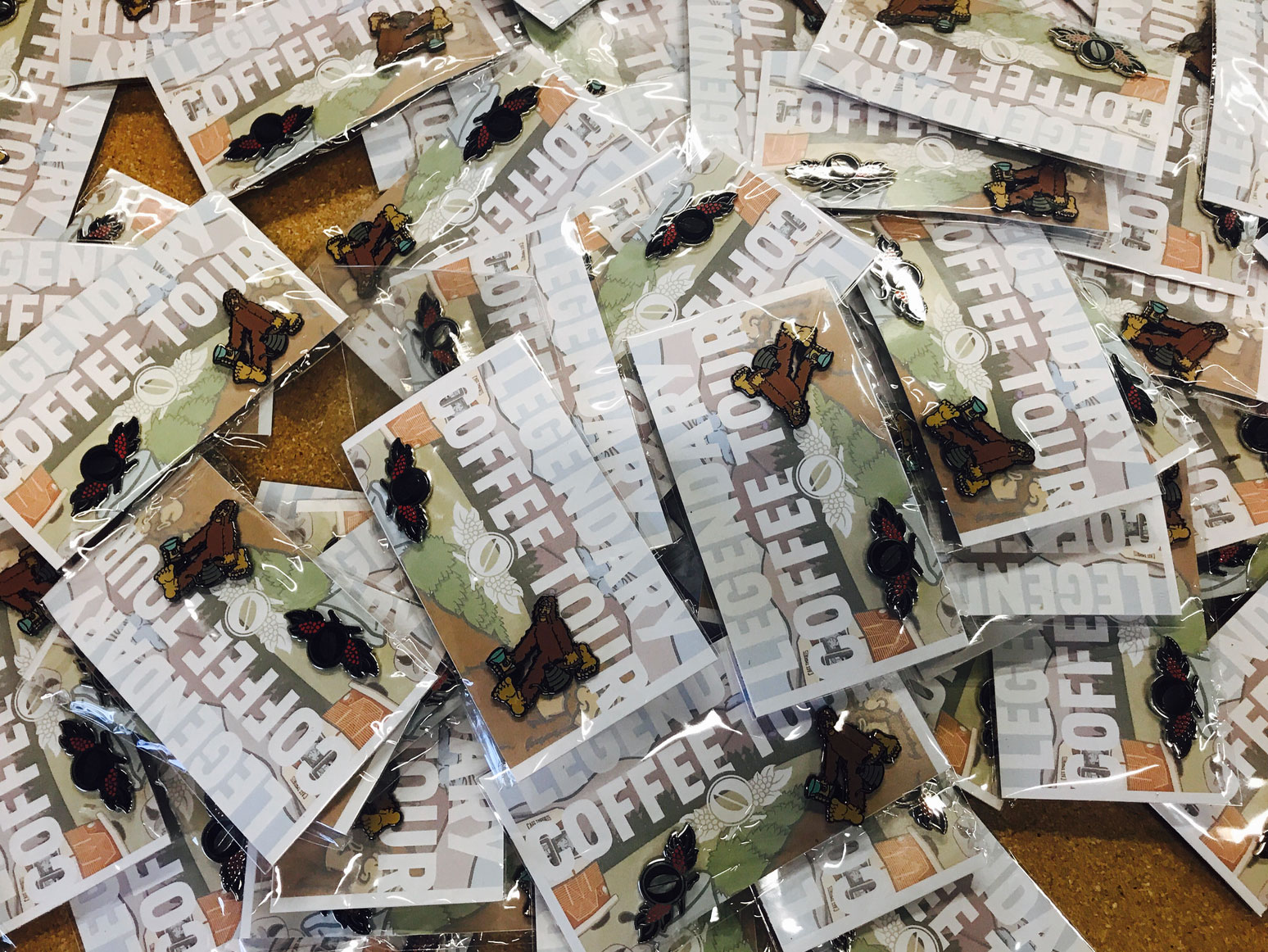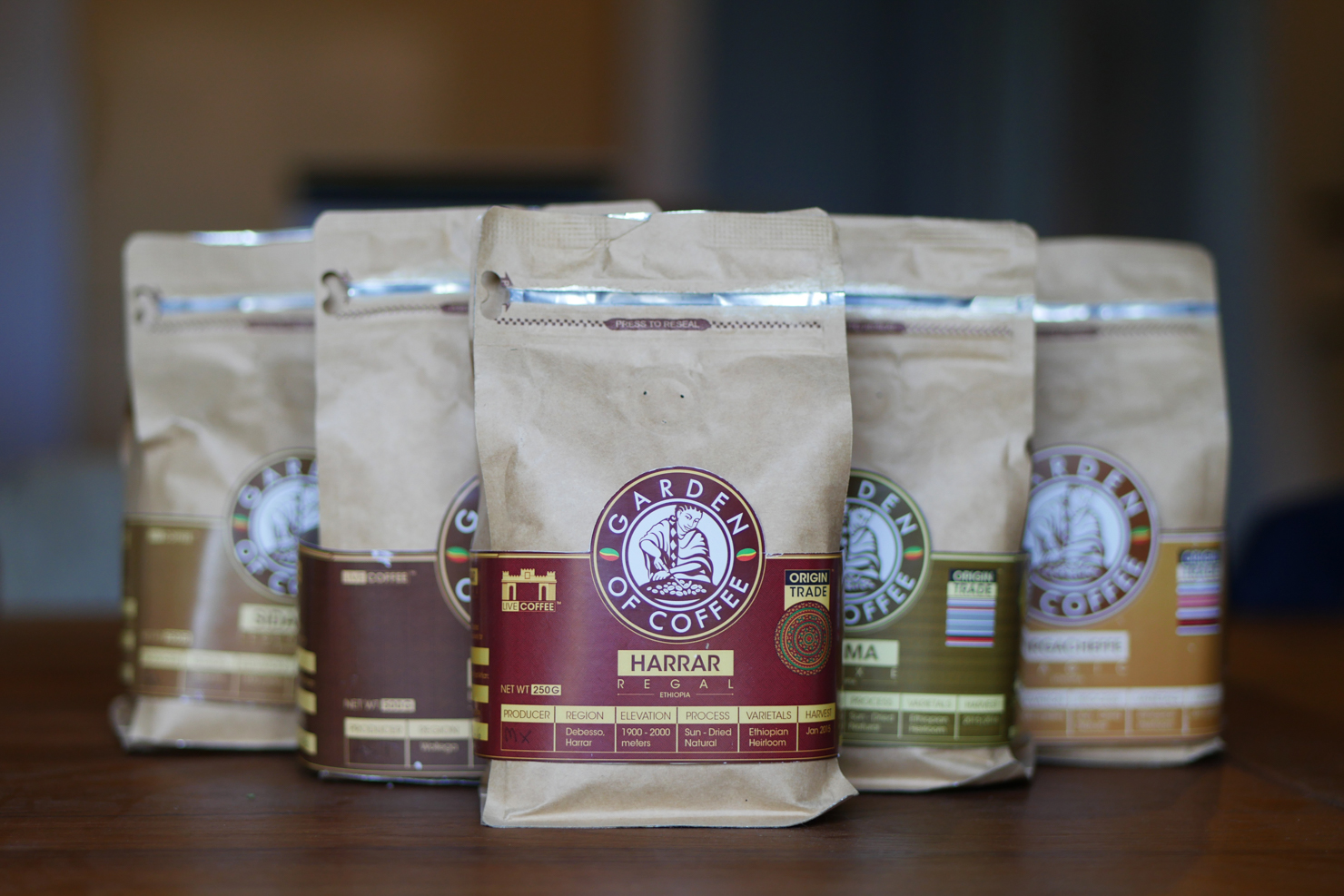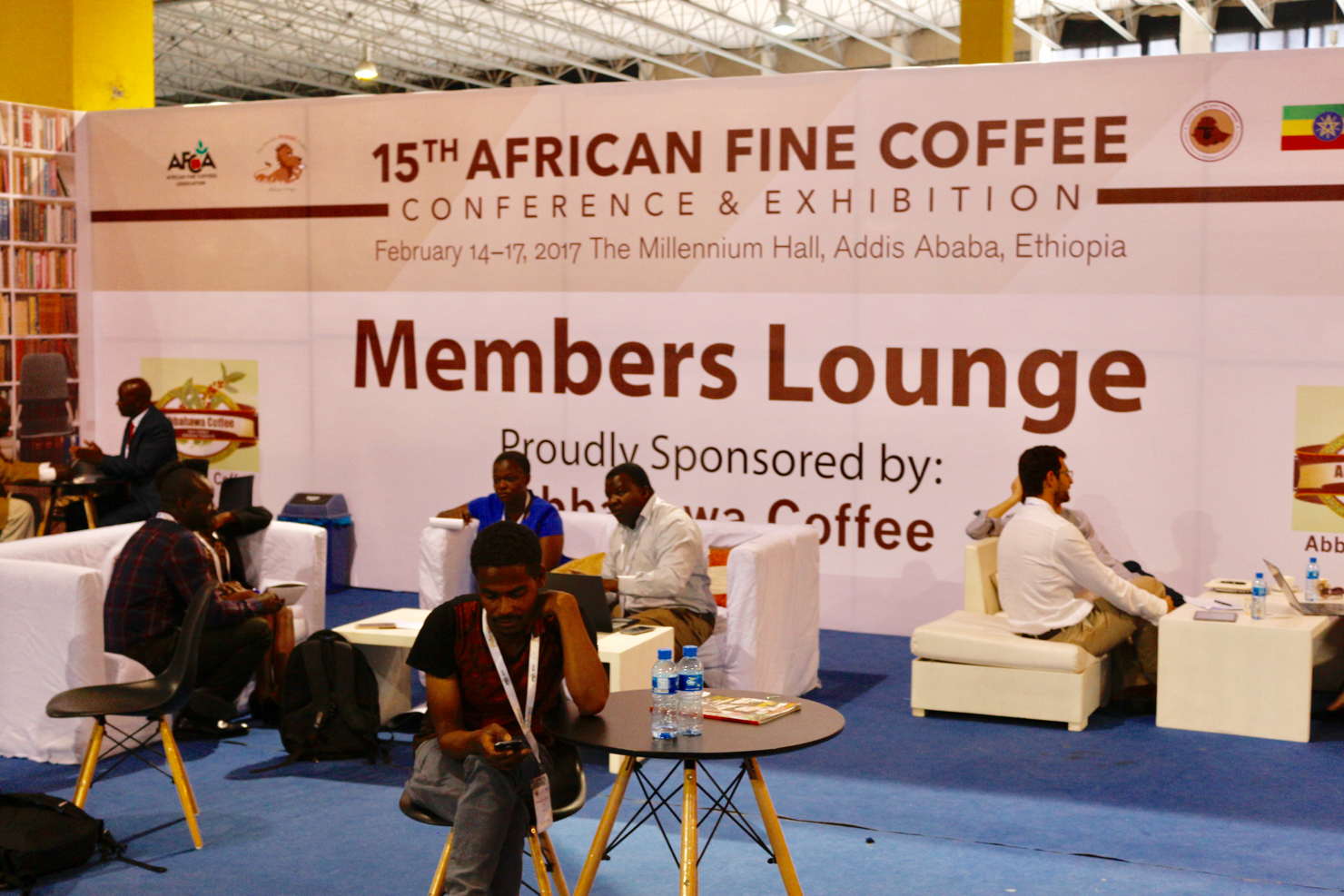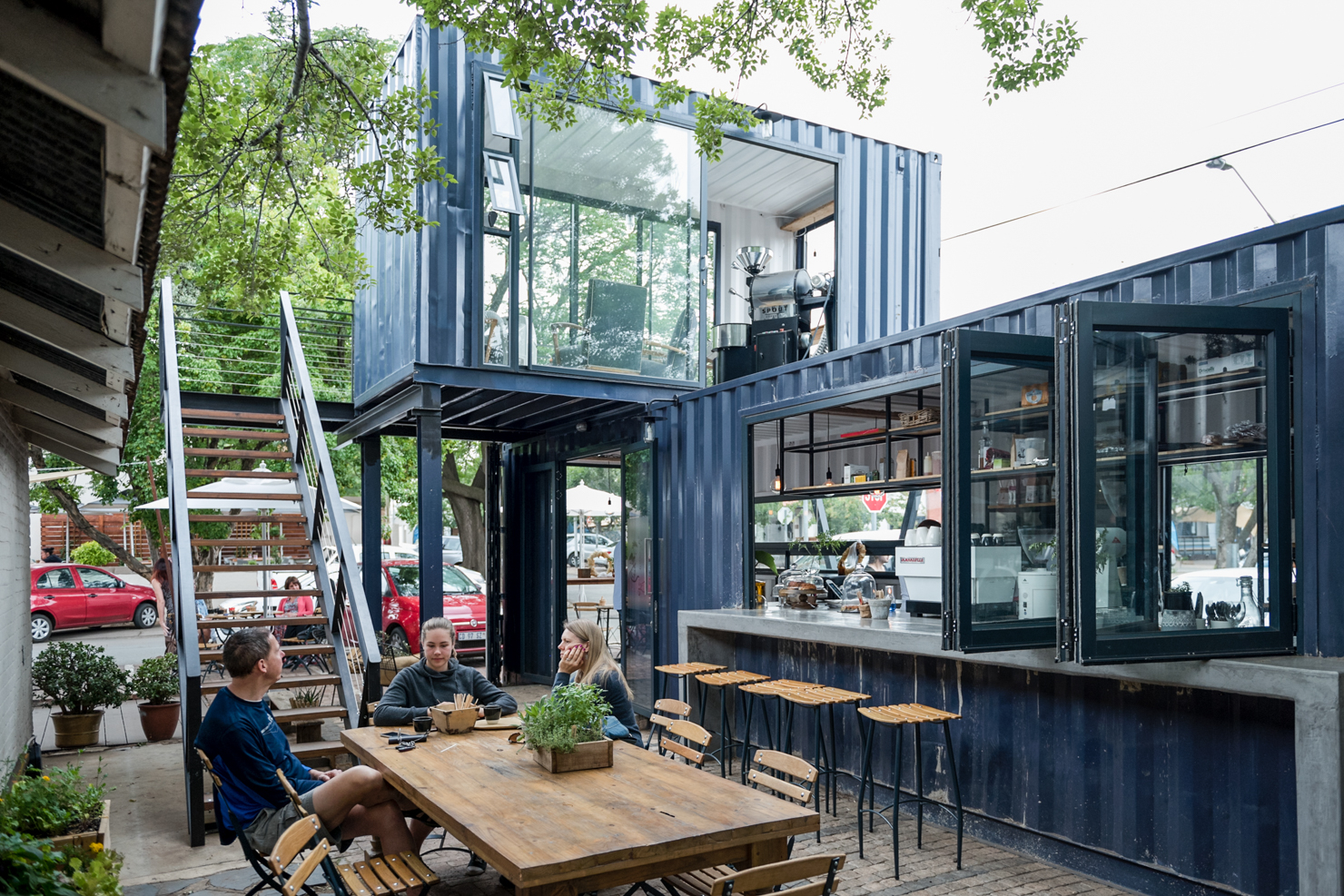Data is a big deal in Rwanda. This place has effectively skipped land line culture, advancing from a very few, select telephone opportunities to a mighty glut of cell phones, and local data plan companies servicing those cell phones. They are in hot competition with each other, waging a marketing war on the canvas of the city of Kigali itself, as well as in the smaller towns and villages that are packed next to each other, cheek to jowl, across the Rwandan countryside. Building after building is decked out in the branding of one of three competing media concerns: red for Air Tel, the newcomer on the scene, who seem particularly aggressive in their prevalence and fire engine hue; yellow for MTN, to whom we’ve entrusted our thumb drive wifi data needs this week in Rwanda; and a kind of deep cobalt African blue for Tigo, who appear to be losing the tricolor data war at this particular moment, if physical marketing can be believed.
When the mind is reeling, say, as you’re being driven around Rwandan for the first time, you look for commonalities from your home country. The weather here this week feels like it does on the Hawaiian island of Kauai, where high elevations and a constant, hazy overcast threaten both rain and baking heat with equal terrifying alacrity (especially that heat, because when the sun peeks through the cloud cover, as it surely does other months of the year here in Rwanda, the whole damn place must just go up in a fireball). Visually the area outside Kigali sort of looks like American Appalachia, with narrow mountain choke points and layered, enveloping hills all around you giving way to startling elevation changes. Especially at night, when the mottled stucco houses of Rwanda – some starkly white, some grey, some Tigo-blue, some red, as if the clay dirt on the ground here had been simply harvested and pounded into mortar – are obscured by darkness, and the hills twinkle and fold in on themselves like the Pittsburgh suburbs.
It’s a pretty long drive out to Abakundekawa, the first of two cooperatives we’re visiting today, a drive that starts off with tarmac and concludes along hours of pockmarked dirt roads. The soundtrack amounts to a kind of case study in cognitive dissonance: our driver decided to download or purchase (or whatever) a 50-song MP3 CD collection of Americana country-western radio hits from the 1970s, which means we are driving through villages like Nyamgabe, Kinyamakara, and Rwinde while listening to Kenny Rogers and Dolly Parton.
The first cooperative we visited is called Abakundekawa (profiled in greater detail here), notable for the cultural and productive importance of its women’s two women’s organizations. Even as we’re filming our way through the wet mill, local kids are filming us with their camera phones, making for several moments like this one:
We’re seated at an ad hoc assembly of the cooperative in a small gathering, where the two different women’s cooperatives engage in a choreographed competition of a capella polyrhythmic song. While ostensibly they’re performing for us, the honored guests, in reality it’s every bit as much for themselves, because the whole place is a big funky dance party for like 45 minutes while the two groups of women duke it out. Certain individual dancers are joyful hams, taking long solos in front of our row of chairs. In another stroke of cognitive dissonance, many of the girls are wearing thrift-store t-shirts from North America, printed with phrases like “Springboro Little League All-Stars”, or “Assistance with all your skating needs!” next to a cartoon pair of ice skates. the fashion milieu in this remote cooperative board not dissimilar to your average Portland bar, though this live music is much better:
Just before we leave Abakundekawa, Richard Sandlin (one of two FTUSA guys in our crew) is granted permission to go for a cruise on one of the locals’ bicycles. There are bicycles everywhere in Rwanda, and we’ve seen several decked out in the branding of the “Bikes To Rwanda” project. Richard climbs aboard and is promptly, gleefully mocked with cries of “Muzunga en velo!” by the coop members gathered around us. Roughly translated, this phrase means “goofy white guy riding a bike!”
The second cooperative we visited – Dukunde Kawa, profiled in depth here – is really high up in the mountains, at like 2000 meters, in an area where it’s possible to simply stroll down the road and into a grove of coffee trees. After checking out the washing station, we’re taken to the nearby home of its most senior member, an 84-year-old man named Abraham Buhirane. Mr. Buhirane has been a coffee farmer since 1959, the year in which the Rwandan Revolution began, ultimately leading to Rwanda’s independence from Belgium in 1961. He is one of the original founders of the Dukunde Kawa cooperative, and he owns around 200 coffee trees, which grow alongside a bounty of agriculture in his front and back yard. He told us, in eloquent French, that soon he would be leaving this earth, but it was made quite clear to us that he is an honored member of the Dukunde Kawa community, and you should think of him the next time you enjoy coffee from this place.
We also had a chance to drink some beer with Minaeu Anasthase, president of the Dukunde Kawa, at a bar in Musasa. The drink of choice in this part of Rwanda is 2/3rds pint of Guiness, topped off with bottled Coca-Cola. The bar we were in literally had no name, but we’re dubbing the drink itself “The Musasa”. It’s totes delicious, and you should consider making yourself one back home, or suggesting it to your favorite local barkeep.
Back in Kigali at the Hotel des Mille Collines, and the TVs outside have mostly just been showing re-runs of the Euro 2012 soccer contest, but tonight, impossibly, improbably, it’s WWE Raw with an overdubbed French announcer. We just watched a muscle-bound Joe Marrocco lookalike body slam someone who looks suspiciously like Kane, but Kane couldn’t possibly still be wrestling, because he was popular in like 1998, and professional wrestlers couldn’t possibly have that long of careers, could they? Anyway, this whole Occident / Orient thing is a trip.











